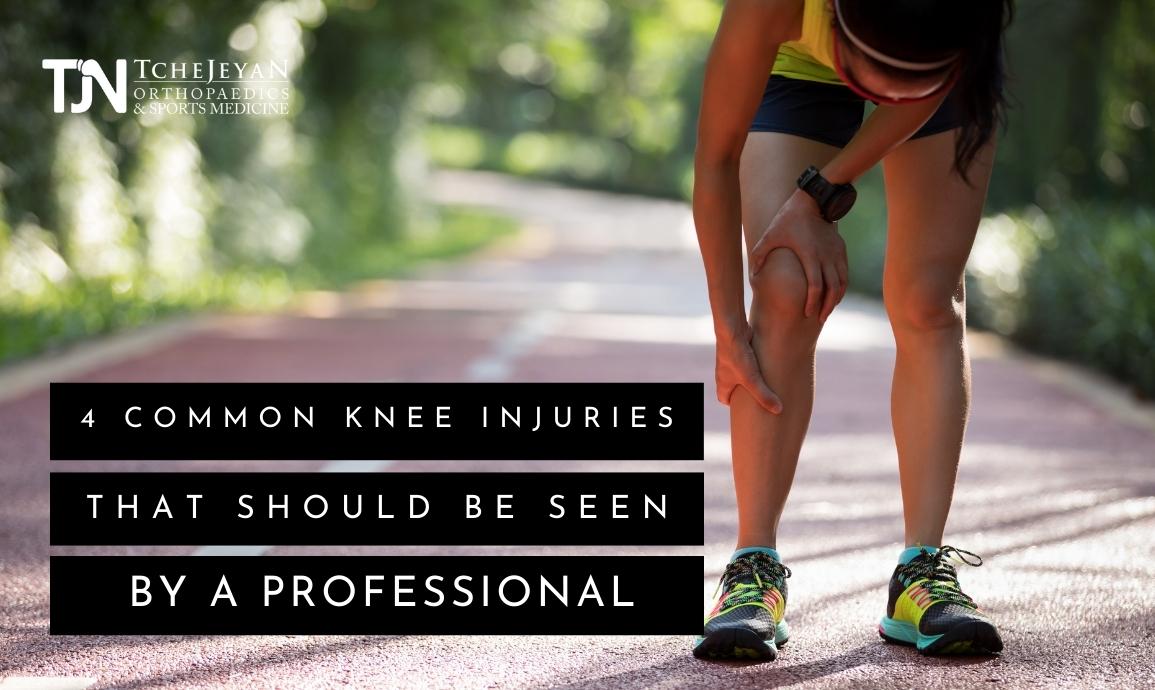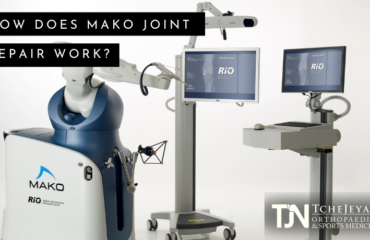You may remember from physical education class that injuries should be treated by applying RICE: Rest, Ice, Compression, and Elevation. In many cases, implementing the measures recommended by this useful acronym is good advice. However, you will need professional consultation for the following types of common knee injuries.
1. Meniscus Tear
Your menisci are two pieces of soft, fibrous cartilage in your knee. They play a crucial role in your knee, acting as a cushion to absorb shock to the bones in your knee. Specifically, the menisci keep your thigh bone (femur) from grinding against and wearing down your shin bone (tibia).
If you have a torn meniscus, it is important to see an orthopedic specialist as soon as possible. Ignoring the problem can lead to further problems, such as soft tissue damage and arthritis, not to mention knee pain and limited range of motion problems.
While some torn meniscus injuries can heal with time and rest, others may require surgery.
2. Knee Tendon Tear
You also should see an orthopedist if you suspect a knee tendon tear. While meniscal tears are generally caused by a single act of twisting the knee when it is bearing your weight, tendon tears can be the cumulative result of seemingly harmless activities, such as running or jumping. However, they can also occur from a single stressful event, such as a vigorous workout or falling down. Certain medications and physical conditions may weaken tendons, making some people more susceptible to tendon injuries.
Over-stressing the knee repeatedly can cause small tears in the knee tendons. And while the pain and injury may be manageable at first, over time, it is clear that something is wrong. Symptoms of a torn tendon needing professional medical attention may include:
- Painful inflammation
- Cramping
- Tenderness
- Knee popping out of place when walking
- Contusions
If any of these conditions are present or persist, you should see a specialist.
3. Kneecap Dislocation
If you know or surmise that you have a dislocated patella, or kneecap, you should make an appointment with an orthopedist as soon as possible. In some cases, a kneecap may pop itself back into place on its own, but even then, you should have it examined to make sure that that is the extent of the injury. It is not unusual to damage the soft tissues in your knee while the kneecap is out of place.
Recovery in most cases requires rest and immobility; you will be sent home with analgesics and a removable splint to keep your leg static while you heal. However, if your kneecap dislocates due to a further knee injury such as a torn tendon, surgery may be necessary to repair the underlying cause and to avoid future re-dislocation of the patella. Many tendon surgeries are now performed using a laparoscopic procedure, which greatly reduces recovery time.
4. Fracture
It is imperative that you see an orthopedist as soon as possible if you break a leg bone. Sometimes, a broken bone will not be obvious, as many fractures are not visible externally. However, if the area is swollen and discolored, and it is extremely painful to put weight on the leg or to touch or press the injured area, you need to have the injury examined and x-rayed.
There are several knee injuries that require professional attention. Some of the most common injuries that require a trip to an orthopedist include meniscal tears, knee tendon tears, and kneecap dislocation.
If you are experiencing any extreme knee pain, loss of mobility, or other symptoms of serious knee problems, contact us today at TJNOrtho to schedule a consultation with Dr. Gregory H. Tchejeyan, MD.





See more about this subject in http://4-Common-Knee-Injuries-That-Should-Be-Seen-By-A-Professional-TJN-Ortho.net.skidson.online/